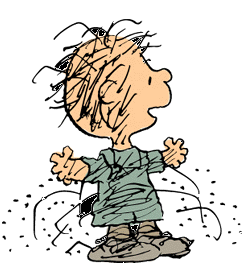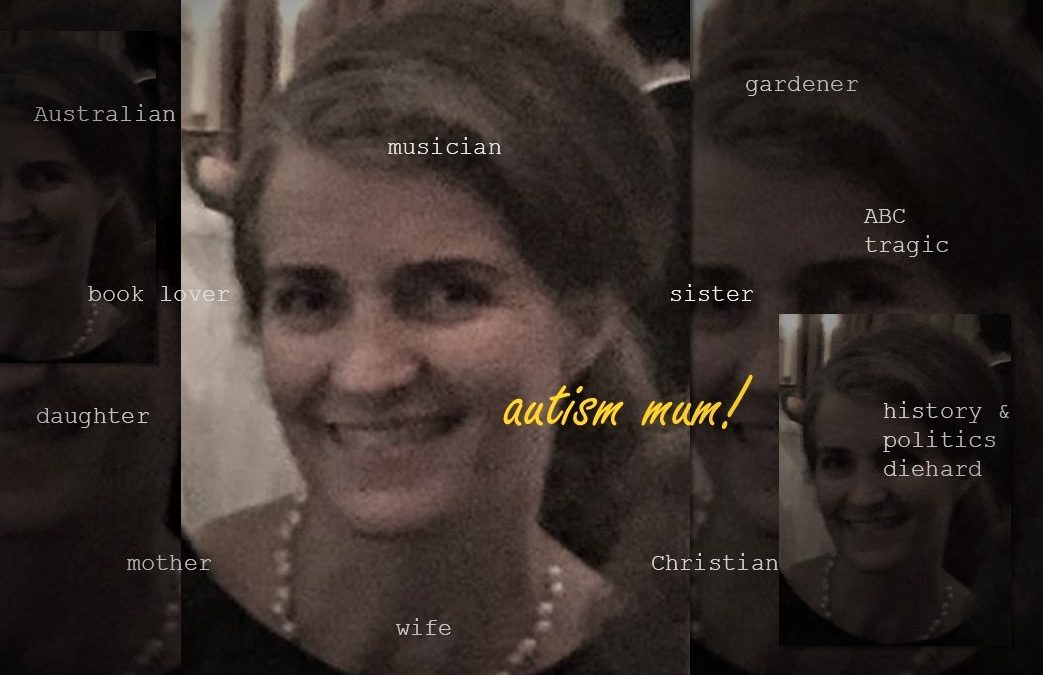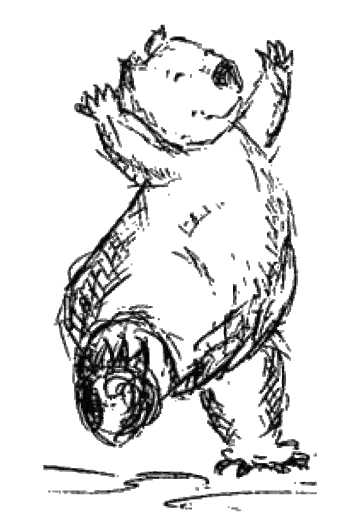Questions of identity
Identity. Who we are. Some of us probably don’t even think about it. For others, thoughts about sexuality, gender, ethnic, religious, even national identity are a constant companion.
I identify myself as Australian, Christian, a wife, mother, sister, cousin and daughter, teacher, musician, gardener, book lover, history and politics follower, ABC tragic…and all of these identities have subsets. I’m a mother, but I’m also an “autism mum”.
Sadly, the term “autism mum” seems to generate controversy from time to time on social media. People become quite heated in their views. I generally don’t follow the exchanges for this reason. Identity, surely, is something we claim for ourselves. Why should others have a right to dictate how we choose to express the complexity of our background, culture, physicality, genetics, personality and circumstances that make up our identity?
Autism mums and the identity caper
Having three of my four children with autism colours every aspect of my daily living. It has profoundly altered my way of thinking. So, I identify myself as an “autism mum”.
As I see it, there are women who have autism (or “autistic women” as some prefer to call themselves), who have children (either with or without autism) who identify themselves as “autism mums”. Then there are women who don’t have autism, but who have children with autism (like me), who also identify themselves as “autism mums”.
Over time, this aspect of my identity has penetrated to the very essence of who I am. It has deepened my understanding and empathy. It has heightened my awareness as I try to anticipate things that might upset my kids, or cause unnecessary challenges for them. It has taught me much about not sweating the small stuff but playing the long game. It has completely changed my life, and it will be there forever.
I cherish being an autism mum. But holding onto your identity can be challenging.
We hear of the challenges faced by people in the LGBTQI community, or who are in any other minority group. I recently listened to an interview with Nazareth-based Dina Katanacho, Director of the Arab–Israeli Bible Society, who spoke of the difficulties she’s experienced through each of her different identities, each of which was intrinsic and precious to her.
I have read comments by women with autism who feel offended when women without autism identify themselves as “autism mums”. It saddens me that I feel the need to defend my identity. Surely as a society, we have progressed beyond this? I’m not challenging anyone else’s right to define their own identity, and I find it hard to understand why I might offend someone in claiming “autism mum” as part of mine. I’ve always been a peacemaker, and hate the thought of upsetting people. But I also hate the thought of others’ denying my right to claim my own identity. Given how hard women have striven for equality and the right to be recognised as their own person – not a husband’s or father’s chattel – it is ironic that women seem to be questioning women over this issue.
I am not part of autism but autism is part of me
Being an autism mum has challenged me, drained me, driven me to despair, amazed and amused me. How do you know that you’re an autism mum? When you straighten things up yourself to save your kids the time later on!
I laugh to myself sometimes, as I go about the house, straightening the mixer tap, replacing the stool to the left – not the right of the microwave, turning our doorstop so that the “right” picture faces outwards.

Pig Pen (Image: Charles Schultz) Kids with autism don’t live in a little autism bubble, like Pig Pen’s cloud of grime.
The challenges that living with autism poses for my kids become my challenges as well. Their autism is not a little bubble around them that affects only them and no-one else. It’s not like Charles Schulz’s character Pigpen, who walks around with his own personal scrabble of mess around him, endearing though that image may be. My kids don’t live in isolation. The endless repetition of the same questions doesn’t occur in some Get Smart Cone of Silence, that no-one but the child uttering them hears. Meltdowns and depression aren’t abstract concepts in my world. Austism has real, practical effects that have to be managed.
The little tics and routines that border on OCD are shared. Constant taps on the shoulder, or against a foot means that this way of alleviating autism-related anxiety has a sensory impact on the person being touched (usually me!) as well as the child doing the touching.
What you buy, when and where you go, how you get there, how long you go there for, what supports you take – there is a whole extra layer of thinking required even for mundane activities. To have or not to have visitors? Doctors’ visits, anyone? Hair cuts? The list goes on. For my kids, autism places a filter over everything and I need to work out what it is and how to manage myself and help them manage so that one day, hopefully, they can do it all for themselves.
I am the sum of my parts
Not having autism myself, I don’t claim to have the understanding or perspective that each of my three children with autism has.* And I don’t wish to give offence in claiming my “autism mum” identity.
In fact, I rarely use the term about myself, because I am so many other things besides this. And my wonderful, adored, clever, funny and – yes – exasperating children are much more than their autism, too.
However, I stand by my right to identify myself according to the things that I feel define me, and so yes, I am an autism mum.
And I’m mighty proud of it.
Until next time, be strong and proud in your identities, whatever they may be. And Happy Wombatting!
*(There’s another point of difference between some: are they autistic children or children with autism? Again, personal preference surely is the key here.)


